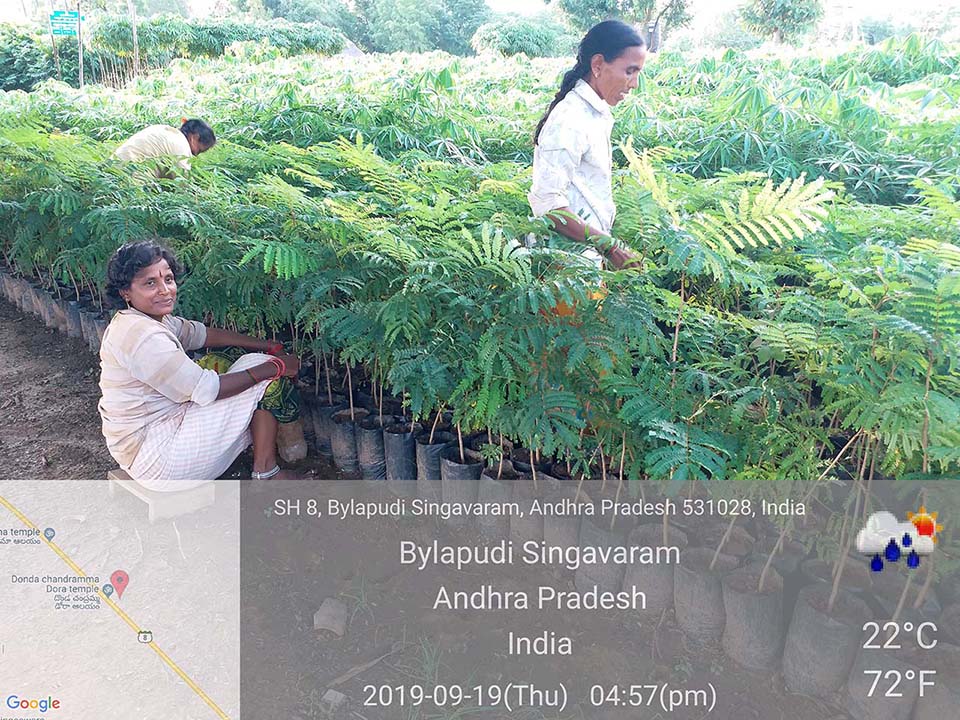
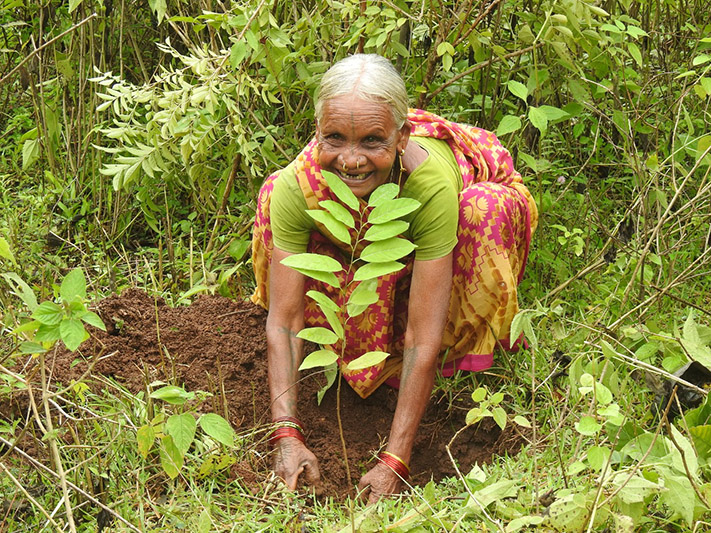
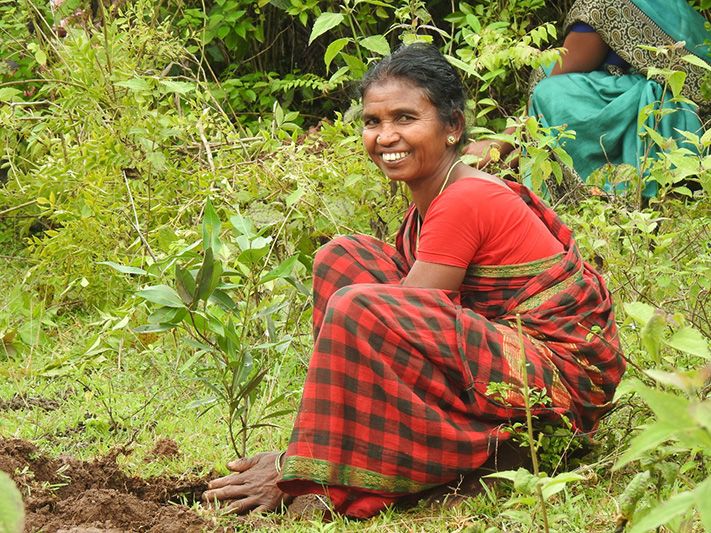
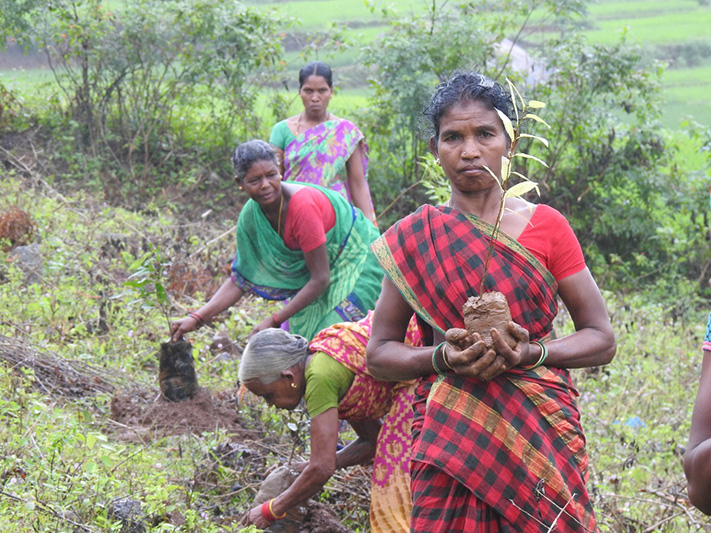
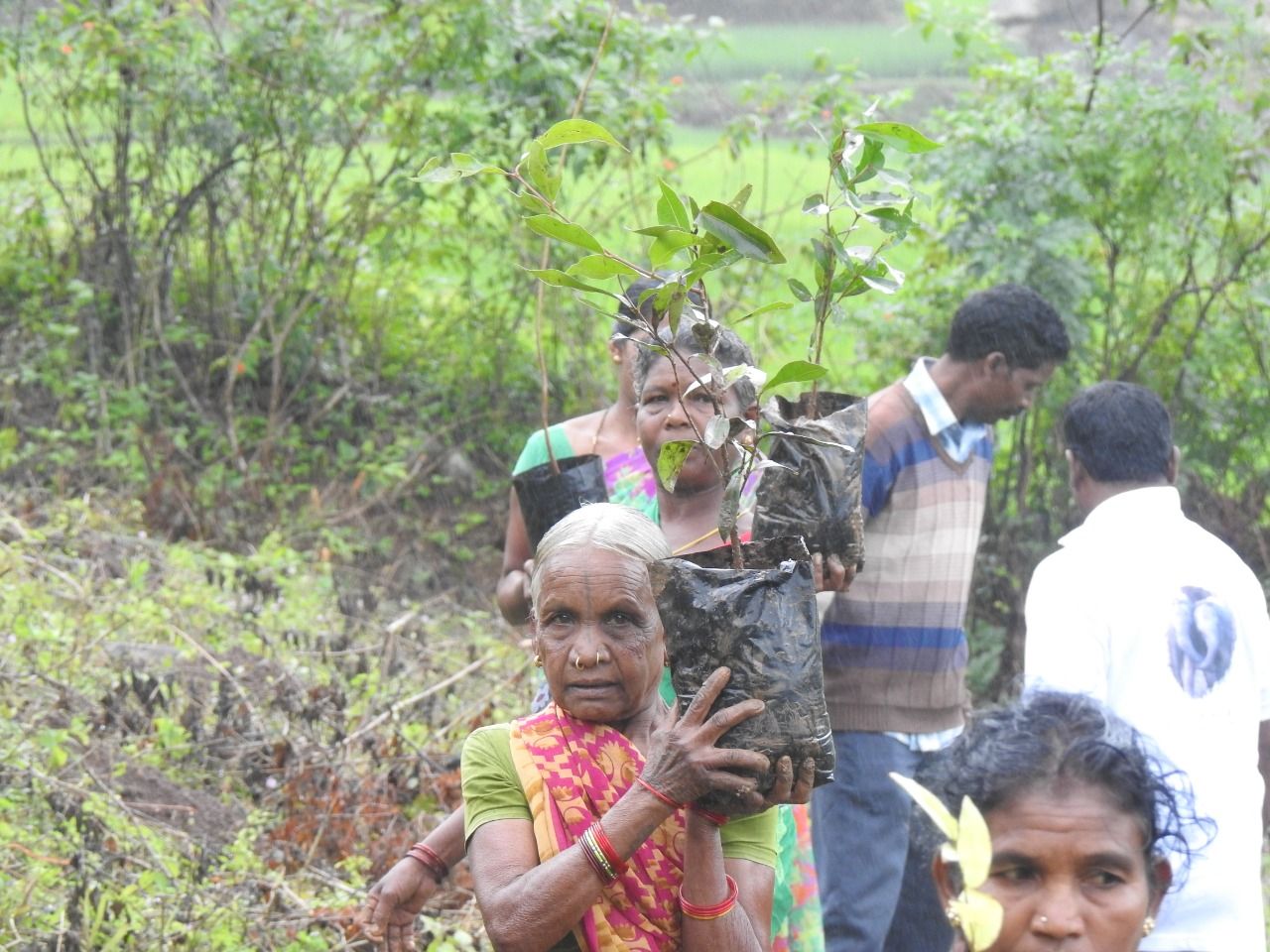
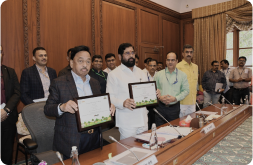
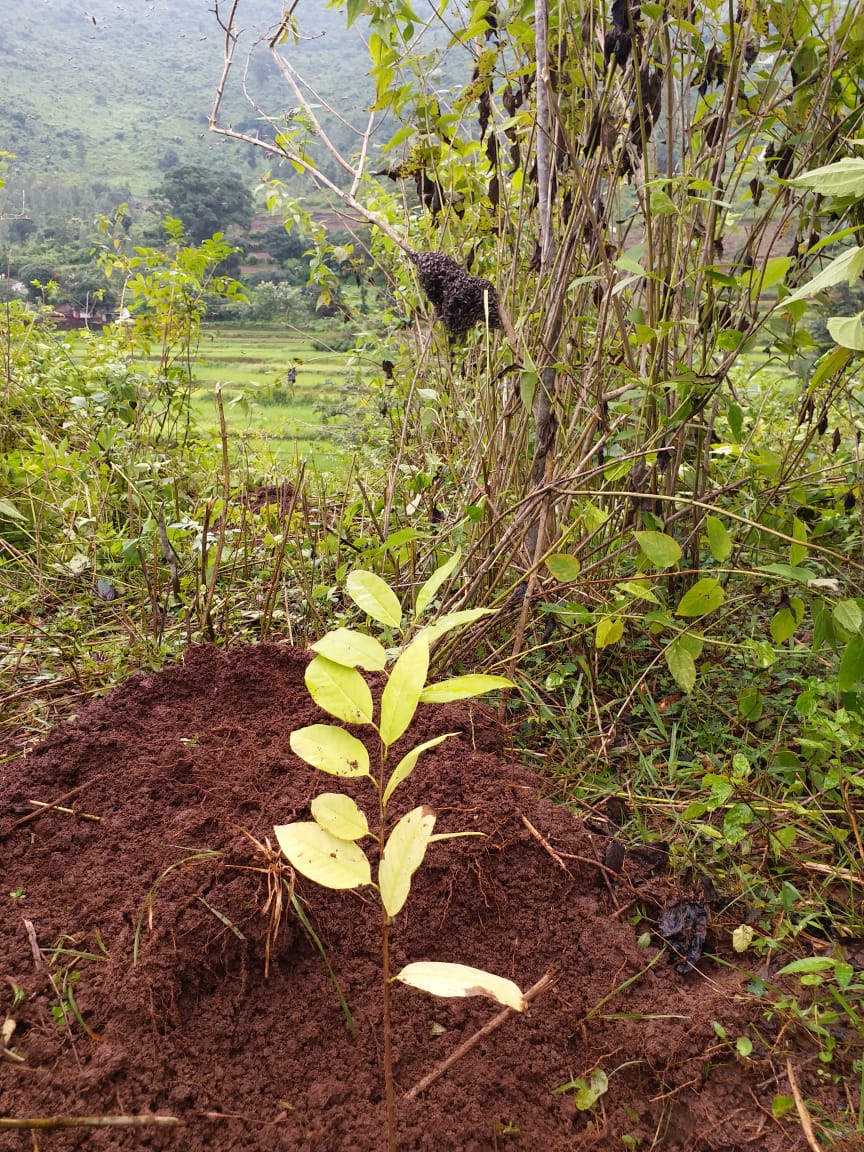
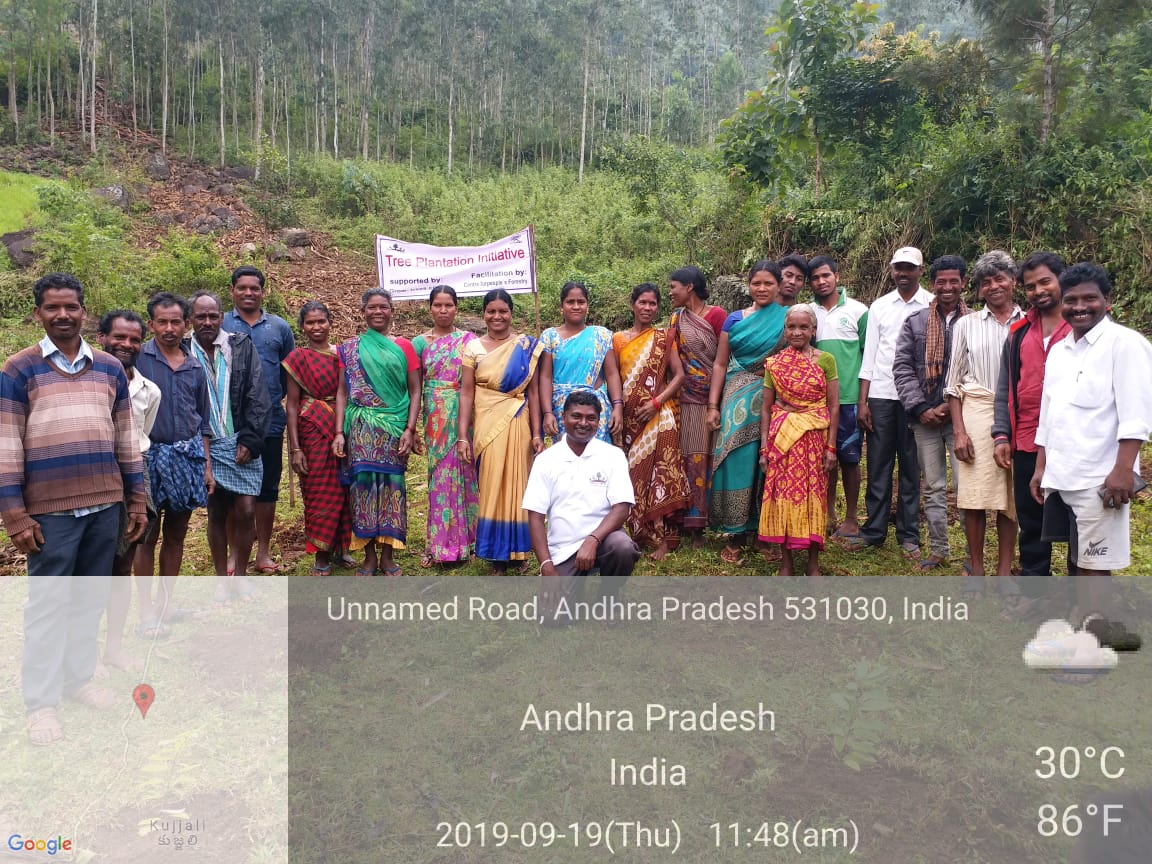



Project Target
0% Remaining
25,000
Trees Planted out of 25,000 Trees

Project Location:
Plantation of local tree species in the Reserved Forests of 8 villages, namely Panasapalle, Nereduvalasa, Kothabu, Kurudumetta, Gorrelagondi, RKothur, Digumodaputtu and Panasaputtu in Paderu Mandal, Visakhapatnam District, Andhra Pradesh, India.
Project Aim
Paderu is an assembly constituency in Andhra Pradesh and is reserved for Scheduled Tribes. "The majority of the tribal population in the district stands below the poverty line and faces problems like indebtedness, illiteracy, malnutrition and exploitation" (Socio-Economic Culture and Quality life of Tribal People in ITDA Paderu Area of Visakhapatnam District - International Journal of Development Research). Another study by the Food and Agriculture Organization (FAO) stated that "The major tribal groups found in the district are Konda Dora, Nooka Dora, Bhagata, Goudu & Kotia. Tribals use the forests as sources of non-wood forest products, fuelwood, housing materials, medicinal herbs, water and irrigation, and for grazing their cattle, hunting and charcoal making." With the initiation of afforestation projects, these communities will not only have access to a sustainable economic lifestyle but will also be reconnected with Paderu’s traditional ethnomedicinal plant species. According to the Research Paper titled ‘Traditional Uses of Some Medicinal Plants by tribals of Gangaraju Madugula Mandal of Visakhapatnam District, Andhra Pradesh’, “Forests and tribal people are inseparable and the existence and development of one depends on the other. The cooperative forests utilization societies can help the tribals in utilizing the forests in which they live.”
Our local planting partner, CPF, believes that in order to preserve these species and work towards the upliftment of the tribals, plantation of native trees is planned. Furthermore, the trees will aid in improving the condition of the soil, which has been degraded due to years of practising shifting cultivation, deforestation, overgrazing, etc. “These soils are...poor in humus, nitrogen and phosphate contents. Man is responsible for major destruction of our landscape and soil resources by his activities which include poor agricultural practices, exposing soil on slopes, removal of forest vegetation, overgrazing, altering the characteristics of streams. The loss of soil, either by natural process or by mismanagement, is harmful not only for agricultural development but to the whole ecosystem, therefore, its conservation has now become a matter of grave concern." stated Dr. Adidela Raja Babu (Department of Geography, Andhra University) in his report ‘Sustainable Development for Soil Resource Management in Visakhapatnam District’.
Mango, Tamarind, Jackfruit, Custard Apple, Lemon, Cleaning Nut Or Induga (Strychnos potatorum), Karaka, Kanuga, Gum Karaya (Sterculia urens), Adda Leaves For Plate Making, Rosewood (Dalbergia latifolia) And Bamboo (Forest-Based Activities In Four Panchayats Of Vishakapatnam District). The Native Tree Species Planted Here Include The Black Murdah (Terminalia paniculata), Neem (Azadirachta indica), Rosewood (Dalbergia sissoo), Blackberry (Rubus spp.), Karanj (Millettia pinnata), Tamarind (Tamarindus indica), Amla (Phyllanthus emblica), Jackfruit (Artocarpus heterophyllus), Custard Apple (Annona reticulata) And Bamboo (Bambusa vulgaris)
Sustainable resource management and addressing the degradation of land are the main objectives of this planting program. The plantation of 25,000 native tree species can be an effective way to address this socio-environmental challenge by reclaiming wasteland and degraded lands into forests. Plantation of fruit-bearing species will enhance the living conditions of the local communities who are dependent on forest resources. Tree species for fuelwood and other minor forest produce will also ensure their economic sustainability while generating over 2,000 workdays of employment for the tribal communities. Moreover, the plantation activity will help in improving the water table, checking top-soil erosion, increasing carbon sequestration potential, generating local employment with household-level participation in implementing and monitoring of the project and improving ecosystem services. On the maturity of forests, these 25,000 trees are expected to absorb about 500,000 kgs of atmospheric carbon every year.
Social Impact of Growing Trees
Community Engagement
Tree planting initiatives often involve local communities, which can lead to greater community cohesion.
Ecological Education
Provides opportunities for community members, especially children, about the importance of environmental sustainability.
Urban Beautification
Trees contribute to the aesthetic enhancement of urban areas, making cities more pleasant and liveable.
Climate Resilience
By improving green cover, tree planting helps make communities more resilient against climate impacts like heatwaves.
Employment Creation
Planting trees creates employment for local community members like planting and maintenance, administrative roles, and more long-term jobs in management.
Wildlife Habitat
Trees provide critical habitats for various species of wildlife. Enhancing tree cover helps preserve biodiversity, which can be an ecological boon for local communities
Copyrights @ 2025 All rights reserved by Pangea EcoNetAssets Pvt Ltd.